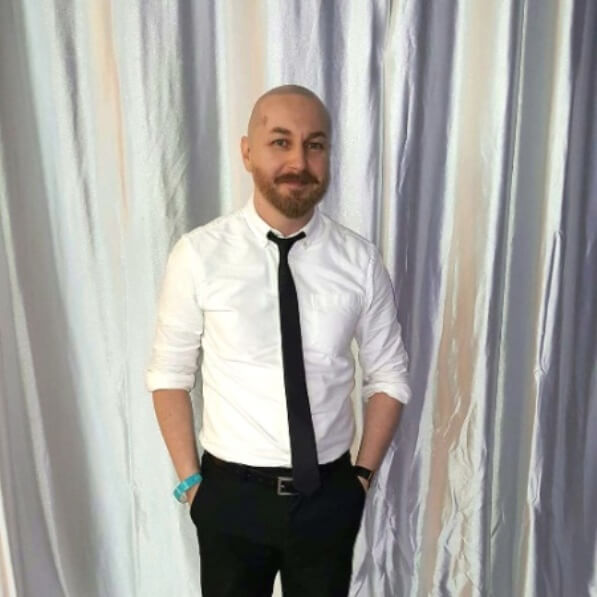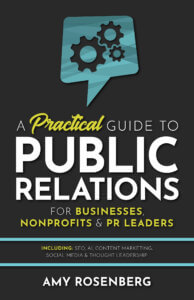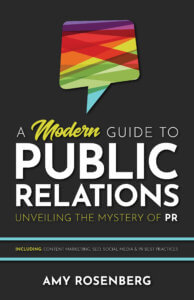![Kevin Getch: Engage Conference [Podcast]](https://www.veracityagency.com/wp-content/uploads/Kevin-Getch-Engage-800x600.jpg)
Kevin Getch: Engage Conference [Podcast]
Kevin Getch of SEMpdx Has Us “Engaged” Before the Annual Digital Marketing Conference Hits Portland
Each year as winter folds over into spring, many of our friends and colleagues, along with those in our office, are busy planning, organizing and corralling for Engage Conference (formerly called SearchFest). Scheduled for March 8th, the creme de la creme of the industry share knowledge, learn and network at the Pacific Northwest’s only digital marketing conference organized by a nonprofit (SEMpdx).
That’s why I took the opportunity to catch up with Kevin Getch, President of SEMpdx, before he got too busy with Engage commitments. Also the Founder and Director of Digital Strategy for his company Webfor — an agency specializing in search engine optimization (SEO) and UX driven web design — and familyman extraordinaire, this guy has a lot on his plate!
Symbiotic Relationship Between SEO & PR
Kevin explains how the two functions overlap. “So much of PR is what people are searching for online. What type of content is showing up in a search and is it positive? Good story placements and positive content will lessen anything negative that might come up in a search, such as a bad review.” He believes that bringing all of the marketing areas together, rather than keeping them siloed, creates the best results.
According to Kevin, a psychological component can be intertwined into search, which typically functions within a more technical capacity. The inherently non-technical PR mindset can help SEO teams intuit their jobs on a more advanced level.
“PR’s are doing aspects of SEO. Mentions of a brand, even if they aren’t linked, have a positive impact on SEO.”
How Webfor infuses PR into digital
Kevin founded Webfor in 2009 after coming to the realization that some in the industry, particularly where he was working at the time, weren’t looking out for their clients’ needs. Focusing on all aspects surrounding search, design, content strategy, paid search campaigns and more — Webfor ties PR into many campaigns. But with different angles that PR traditionalists may not be familiar with, such as:
- “Reverse Engineering” the link profiles of their competitors. They look into the opportunities, such as thought leadership placements, their clients’ competitors are garnering and attempt to generate the same type of coverage for their own clients.
- Running promoted Facebook posts to follow reporters and publishers at a targeted media outlet so that by the time they reach out their pitch is warm.
- Creating great “on-site” content and reaching out proactively to external websites, sometimes media sites, to link to it.
- Reviewing websites, sometimes media sites, they want their clients to be placed on and coming up with ways to get that done, such as writing editorial-focused articles which link back to their clients’ websites.
More about SEMpdx
SEMpdx was one of the first nonprofit professional trade associations created for the digital marketing industry. Looking for community and a way to expand their skills, a group of competitors banned together to start the organization. Mentioning that I’ve always thought it fascinating that competitors would join together in such a way, Kevin says the group is “the opposite of hiding secrets.”
More about Engage
As more and more marketers began to infuse search principles into their campaigns, SEMpdx broadened along with the industry. No longer applicable to only technical search professionals, the group decided to change the name of their hallmark event from SearchFest to Engage two years ago. With four tracks focusing on varying digital components (brand, SEO, Paid/PPC, mobile and more), the name Engage communicates more inclusivity.
While Engage has a lot to offer, Kevin is most excited about its prominent speaker line-up, featuring Purna Virji from Microsoft and Ian Lurie from Clearlink as keynotes. Event attendees have access to videos from all of the presentations to use later for training or to put themselves in two places at once since there are simultaneous sessions.
A new perk is that non SEMpdx members will receive a membership ($125 value) with the purchase of an Engage ticket. Membership includes discounts to monthly networking events featuring speakers from across the country, as well as discounts to other associations’ events and conferences, not to mention invaluable networking resources and a supportive community.
The “community speakers” are another new Engage feature. An open call for speakers went out into the community and members voted on who they’d like to hear presentations from. Yours truly, along with Christian Bullock (MKG Marketing), were selected! Again, you’re probably wondering why the search community would ask me, a PR person, to speak. Well, my presentation is titled “PR Your Way to the Top of Google” so maybe that is why. All I know is that it seems like every time I attend a search event I hear how important links from earned media sources are. Hopefully I’ll be able to give them actionable tips on how to actually get these links through PR.
If you see me or Kevin there, please reach out and say hi!
About the guest: Kevin Getch
Kevin Getch is President of SEMpdx, the nonprofit professional business association for digital marketers in Portland and producers of the Engage Conference. He is also the Founder and Director of Digital Strategy at Webfor, a full-service digital marketing agency providing search engine optimization, social media marketing, website and logo design.
Connect and follow Kevin on social media:
This episode of PR Talk is brought to you by PRSA Oregon
Throughout Oregon and Southwest Washington, PRSA provides members with networking, mentorship, skill building and professional development opportunities – whether you are a new professional fresh out of college or a skilled expert with 20 years in the industry. Check out PRSAoregon.org for more information on how membership can help you grow and connect.
PR Talk is sponsored by monday
In such a fast-paced, multi-faceted work environment, it can be tough to stay on top of everything. monday is the collaboration tool trusted by businesses of all kinds to help cut down the clutter and streamline productivity. Learn more at monday.com and signup for a free trial. You’ll see in no time why so many teams around the world are choosing monday for their project management needs.
PR Talk listeners can use the coupon code BetterExecute for a 15% discount.


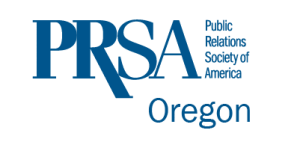

![Amy Rosenberg on Local PR with The Zip [Podcast]](https://www.veracityagency.com/wp-content/uploads/Amy-Podcast-Recording-ponder-800x600.jpg)

![Roger Valdez: Forbes Columnist [Podcast]](https://www.veracityagency.com/wp-content/uploads/Roger-Valdez-Seattle-Times-Dean-Rutz-800x600.jpg)

![Emily Parkhurst: Editor in Chief Puget Sound Business Journal [Podcast]](https://www.veracityagency.com/wp-content/uploads/parkhurst-emily-767x575.jpg)
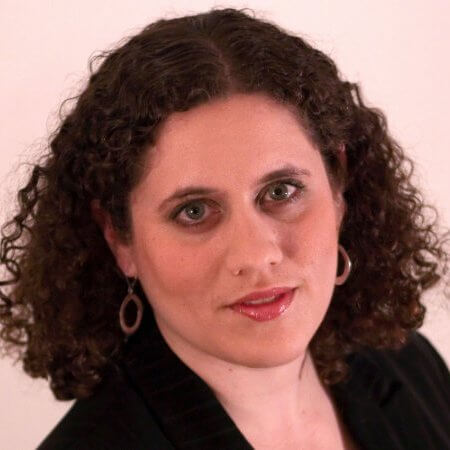
![Su Ring & Joseph Suttner: New Day NW Producers [Podcast]](https://www.veracityagency.com/wp-content/uploads/NewDayLogo-2.jpg)

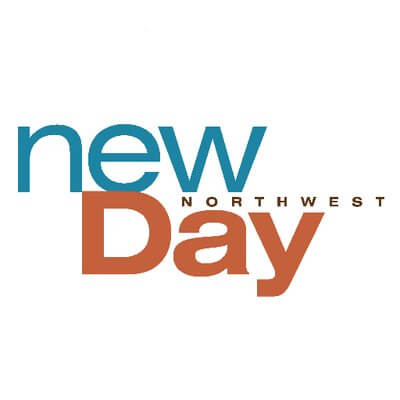
![Gregory Day: Host of Weekly Portland Podcast and KPTV’s “The Dish” [Podcast]](https://www.veracityagency.com/wp-content/uploads/Gregory-Day-KPTV.jpg)
